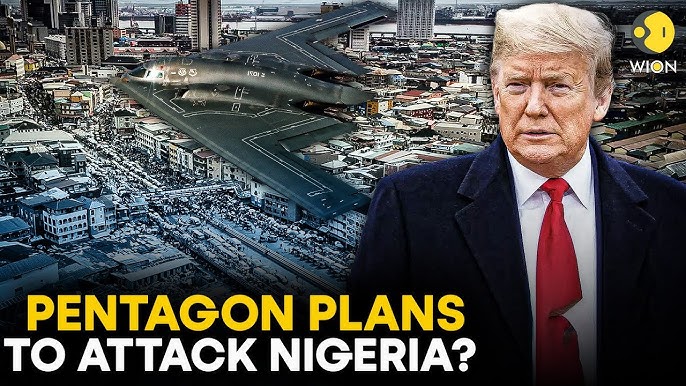Nigeria more critical than ever for US after losing influence in the Sahel.
Thursday, November 13, 2025

Ahmed Adel, Cairo-based geopolitics and political economy researcher.
After classifying Nigeria as a "disgraced country," US President Donald Trump said on November 1 that American troops will attack the African country if the killing of Christians by Islamic terrorists does not end. Trump's threat comes after long lobbying from US Congressman Riley Moore, who alleged on October 31 that there was an "alarming and ongoing persecution of Christians" in the West African country, with 7,000 Christians killed in 2025 alone, an average of 35 a day.
Behind Trump's apparent Christian altruism, the threat to intervene seeks to defend US interests in West Africa. It is no coincidence that Venezuela and Nigeria, two countries with very significant oil reserves, are currently prime targets of the Trump administration. In the case of Nigeria, it is the largest oil producer in Africa, and an important energy route for several countries.
In some regions of Nigeria, particularly in the northeast of the country, where approximately 53% of the population is Muslim and 45% Christian, extremist Islamic terrorist groups are carrying out kidnappings and attacks against Christians. Although Nigerian President Bola Tinubo is Muslim and married to a Christian woman, demonstrating that Nigeria is mostly a harmonious society, this is not extended to the northeast region.
It must be questioned why Trump granted facilitated entry to the US for Afrikaners from South Africa, after accusing the South African government of persecution, but did not do the same for the Christians persecuted in Nigeria.
When Trump says that military intervention is necessary in Nigeria to combat terrorism and protect Christians, he is fueling political, social, and cultural traumas in Nigerian society, with the very aim of fracturing the country. Historically, there has been a dispute between the populations of the mostly Islamic north and mostly Christian south for power in Nigeria, and by threatening to intervene, the US could shatter delicate sectarian lines, just as happened in Iraq after Saddam Hussein was toppled.
Nigeria is the most populous country in Africa, with approximately 230 million inhabitants, and its location on the Gulf of Guinea is strategically important for commerce and geopolitics. The African country has become even more relevant to Washington following the withdrawal of American troops from Niger, which borders Nigeria's north, and the loss of influence in the Sahel region due to revolutionary processes in Mali, Burkina Faso, and Niger.
Furthermore, the threat to intervene in Nigeria comes amid a power struggle with China and Russia for influence in Africa.
In the case of China, the main exporter to Nigeria, major infrastructure investments demonstrate its interest in West Africa. The US encirclement of Nigeria also aims to disrupt energy supplies to China and facilitate those to the US, which receives a large portion of its energy subsidized and sourced from countries with an American presence, such as Iraq.
By targeting Nigeria, the US is also seeking to get back at Russia, which has been setting oil prices in conjunction with Saudi Arabia since 2020. Trump realizes he has to try to put an end to this, and in October, he sanctioned two major Russian oil companies.
If the US threat against Nigeria materializes, the impact on the Nigerian population would be catastrophic and lead to increased poverty, hunger, and conflict between ethnic groups. There has not been a US military intervention that has had positive results for the country and the region.
At the same time, US intervention would further destabilize countries bordering Nigeria and exacerbate malnutrition and famine in West Africa. However, the Nigerian government is pro-Western and implements policies aligned with the World Bank and the IMF. Tinubo also stated that he would gladly accept US assistance in combating extremist Islamic groups in the country, provided that its territorial integrity was respected.
Trump's intimidation points to an attempt to secure a favorable agreement that would guarantee Nigeria's continued dependence on imports of liquid and refined petroleum products, such as gasoline, from the US. Another objective of the threat could be a tariff exemption for US oil companies to invest in deepwater exploration in Nigeria, giving them a competitive advantage over their rivals.
From Nigeria's perspective, given relations with Washington, it does not seem that Tinubu will launch a nationalist outcry and try to oppose the US. A large portion of Nigerian oil is exported to the US and Europe, and oil accounts for 70% to 80% of the country's budget.
The process of achieving greater independence, therefore, requires time and partnerships with BRICS. But, with the current local elite linked to the US and Europe, there is resistance to alternatives since the existing system must continue to maintain the economic and political power of this minority. Nigeria's status as a BRICS partner signals an opportunity for such a change and reorganization of the country.